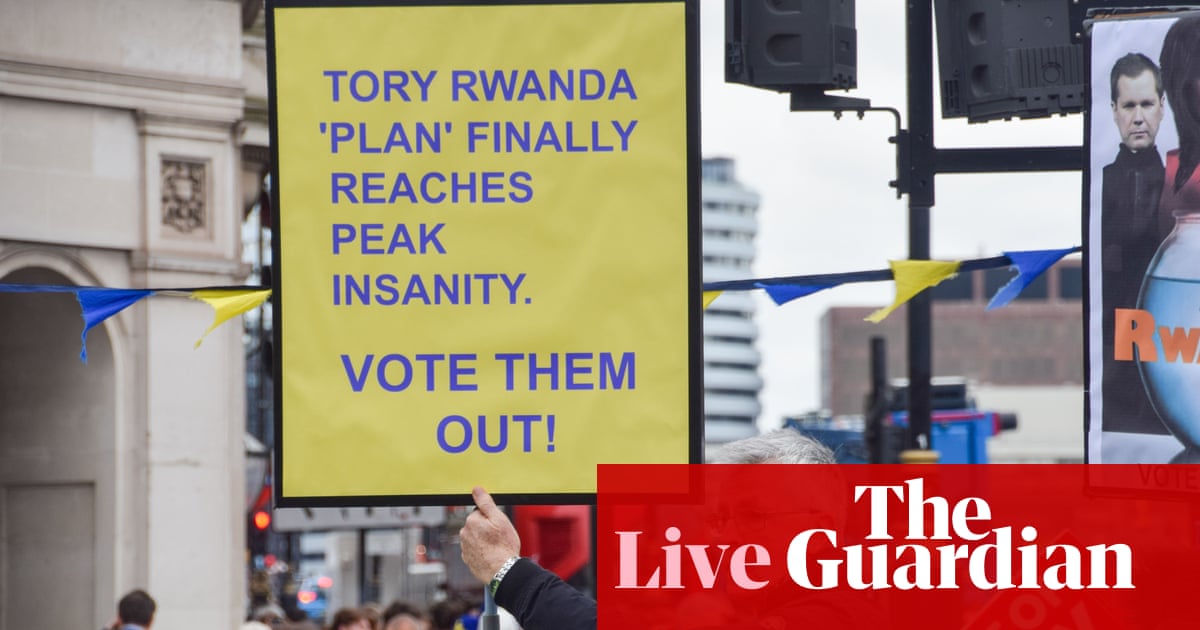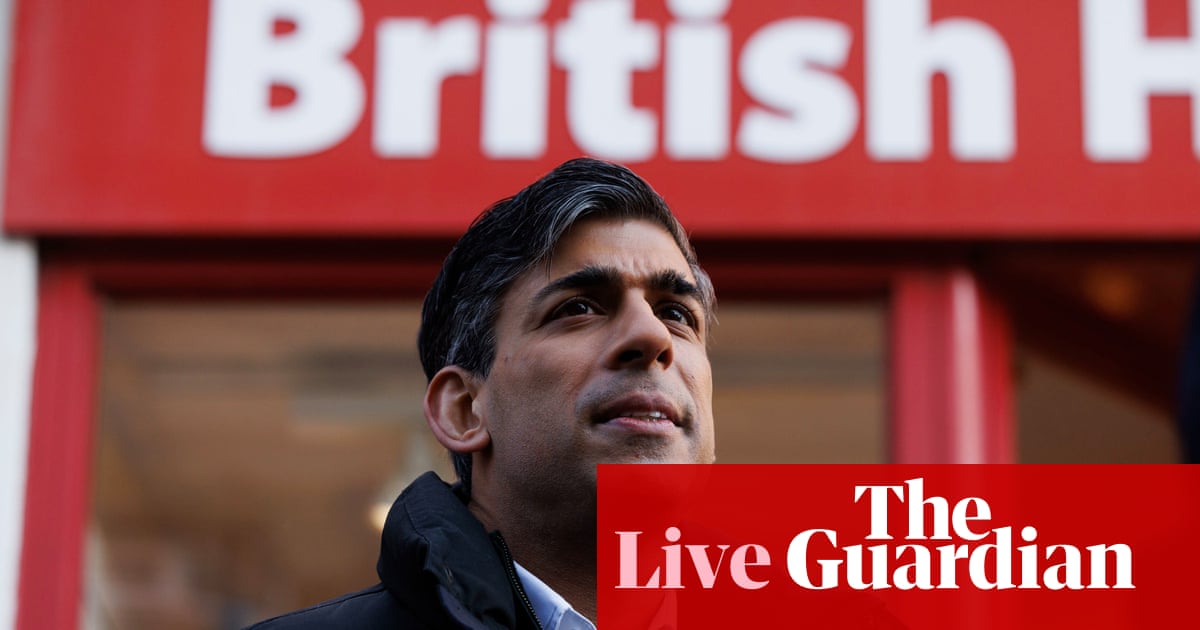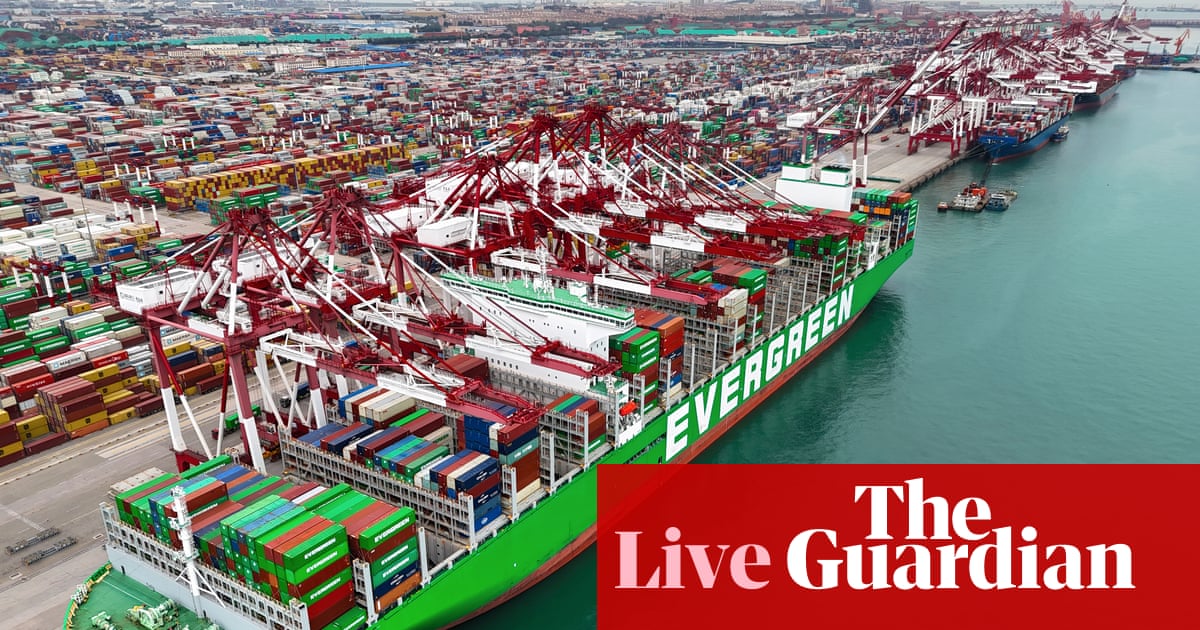
Treasury will not publish OBR forecast delivered to them on 7 October until 23 November
The Treasury said that Liz Truss, Kwasi Kwarteng and the OBR discussed the “economic and fiscal outlook” as well as the process for growth forecasts.
However, they said the forecast – which they will receive on 7 October – won’t be published until 23 November. The government also said it “values” the OBR’s scrutiny.
The official readout from the Treasury said:
This morning the prime minister, Liz Truss, and chancellor, Kwasi Kwarteng, met with the OBR’s budget responsibility committee, including the chair, Richard Hughes, at No 10 Downing Street.
They discussed the process for the upcoming economic and fiscal forecast, which will be published on 23 November, and the economic and fiscal outlook.
They agreed, as is usual, to work closely together throughout the forecast process and beyond.
The prime minister and chancellor reaffirmed their commitment to the independent OBR and made clear that they value its scrutiny.
Summary
That’s all from us today Here’s today’s main developments and news.
Following a meeting with the prime minister, Liz Truss, and the chancellor, Kwasi Kwarteng, the Office for Budget Responsibility has confirmed it will deliver an initial forecast on 7 October. A spokesperson for the OBR said: “[The forecast] will, as always, be based on our independent judgment about economic and fiscal prospects and the impact of the government’s policies.” The announcement comes after a 48-minute emergency meeting at 11 Downing Street this morning.
The Treasury said that Truss, Kwarteng and the OBR discussed the “economic and fiscal outlook” as well as the process for growth forecasts. However, they said the forecast – which they will receive on 7 October – won’t be published until 23 November. The government also said it “values” the OBR’s scrutiny.
A Treasury minister has contradicted the UK’s independent watchdog for public finances, saying it would not have been able to produce a forecast in time for the government’s mini-budget. Andrew Griffith, the financial secretary to the Treasury, told broadcasters the growth plan put forward by Truss and Kwarteng contained “a lot of detail” and repeatedly asserted it was “40 pages long”, meaning it would have been impossible for the OBR to have produced an accurate forecast in time.
The prime minister will be on the BBC’s Sunday with Laura Kuenssberg this weekend as the Conservative party conference begins, PA Media reported. Truss will be interviewed on the weekend politics programme, which begins at 8.30am. The shadow chancellor, Rachel Reeves, will also appear on the show.
Half of the public now believe it is likely Keir Starmer will become prime minister, according to polls, reports PA Media. A poll of 1,000 adults by Ipsos found 51% think Starmer will enter No 10, up from 38% surveyed in May. More than one-third of voters (35%) said it was unlikely Starmer would become prime minister, a decrease from 50% in January.
More polls have given the Labour party strong leads over the Conservatives. One, by BMG for the i newspaper, gave them a 17-point lead, on 47% to the Tories 30%. Meanwhile smaller firm Omnisis gave them a 33-point lead, as they had 55% against the governing party’s 23%.
Liz Truss is preparing to push ahead with an unlimited number of “investment zones”. The policy is despite a row within the government that it could hand an uncosted blank cheque of tax breaks to businesses.
Talks aimed at ending the dispute over the Northern Ireland Brexit protocol are set to reopen after a video meeting between the foreign secretary, James Cleverly, and the European Commission vice-president, Maroš Šefčovič, on Friday. Šefčovič said he had a “good conversation” with Cleverly during a call on Friday lunchtime.
Liz Truss will deliver the biggest permanent real-terms cut to the basic rate of benefits ever made if she fails to raise them in line with inflation, one of the UK’s leading poverty charities has said.
Truss has previously suggested universal benefits, such as the state pension, should be scrapped because of the “huge expense” to taxpayers of “recycling” their money through the system – prompting fears she could go further still with her plans to cut back the benefits bill. The proposal, included in her motion to the Liberal Democrat Youth conference in spring 1995, highlighted the “enormous – and rising – cost of pensions and child benefit”, calling for a “search for realistic alternatives to universal benefits”.
The Greens have kicked off their conference with a call for taxes on wealth and “dirty profits” to finance the transition to renewable energy – while warning Labour’s plans, unveiled last week, are woefully insufficient. At the gathering in Harrogate, days after a Labour conference based heavily on clean power initiatives, the Green party in England and Wales – the Scottish Greens are separate – repeatedly stressed policy differences over not just renewables but areas such as support for strikers and public ownership.
Thanks for following along today.
Another stonking polling lead for the Labour party, as research by BMG for the i newspaper has given them a 17-point edge over the Conservatives.
Nearly half of the voters who backed the Tories in the 2019 general election say they will no longer vote for the party, the polling shows. Just one-in-five support the “mini-budget” from last week which since saw the UK tumbling in the currency and stock markets.
The 17-point lead puts Labour on 47%, ahead of the Conservatives on 30%. The Liberal Democrats are on 9%, the Greens on 5% and Reform UK on 3%.
It would give Labour “a 1997-esque landslide majority” at the next general election, according to BMG’s Robert Struthers.
BMG uses a different polling model to other firms that have given larger leads. Their method aims to account for disaffected voters who say they will abstain but are likely to return to the party they previously backed when polling day comes around.
Following Thursday night’s YouGov poll which gave Labour a 33 point lead over the Conservatives, the polling firm Omnisis has given Keir Starmer’s party a 32 point lead.
It puts them on 55%, ahead of the Tories on 23%. The fieldwork was carried out on Thursday and Friday, with the governing Tories falling by 9% since results from Omnisis’ surveys between September 23 to 26.
While a far smaller polling company than YouGov, it gives a similar scale lead for Labour, putting them at levels not seen since 1998. Another by Survation had given the opposition party a 21 point lead.
My colleagues Rowena Mason, Jessica Elgot and Aubrey Allegretti have this exclusive on how the prime minister will continue with her policy of “investment zones” despite a row about tax breaks.
Liz Truss is preparing to push ahead with an unlimited number of “investment zones” despite a row within the government that it could hand an uncosted blank cheque of tax breaks to businesses.
The Treasury is believed to have raised concerns about “carpet bombing the entire country” with investment zones, with the government about to announce an appeal for areas to apply within days – as the Conservatives prepare for their annual conference in Birmingham.
However, Whitehall officials, including in the Treasury, are extremely concerned about the potential liability of not capping the number of areas allowed to get favourable tax and planning treatment. There is also concern that some of the tax breaks under consideration will last for 10 years.
Summary
Here is a round-up of today’s stories from Westminster:
Following a meeting with the prime minister, Liz Truss, and the chancellor, Kwasi Kwarteng, the Office for Budget Responsibility has confirmed it will deliver an initial forecast on 7 October. A spokesperson for the OBR said: “[The forecast] will, as always, be based on our independent judgment about economic and fiscal prospects and the impact of the government’s policies.” The announcement comes after a 48-minute emergency meeting at 11 Downing Street this morning.
The Treasury said that Truss, Kwarteng and the OBR discussed the “economic and fiscal outlook” as well as the process for growth forecasts. However, they said the forecast – which they will receive on 7 October – won’t be published until 23 November. The government also said it “values” the OBR’s scrutiny.
A Treasury minister has contradicted the UK’s independent watchdog for public finances, saying it would not have been able to produce a forecast in time for the government’s mini-budget. Andrew Griffith, the financial secretary to the Treasury, told broadcasters the growth plan put forward by Truss and Kwarteng contained “a lot of detail” and repeatedly asserted it was “40 pages long”, meaning it would have been impossible for the OBR to have produced an accurate forecast in time.
The prime minister will be on the BBC’s Sunday with Laura Kuenssberg this weekend as the Conservative party conference begins, PA Media reported. Truss will be interviewed on the weekend politics programme, which begins at 8.30am. The shadow chancellor, Rachel Reeves, will also appear on the show.
Half of the public now believe it is likely Keir Starmer will become prime minister, according to polls, reports PA Media. A poll of 1,000 adults by Ipsos found 51% think Starmer will enter No 10, up from 38% surveyed in May. More than one-third of voters (35%) said it was unlikely Starmer would become prime minister, a decrease from 50% in January.
Talks aimed at ending the dispute over the Northern Ireland Brexit protocol are set to reopen after a video meeting between the foreign secretary, James Cleverly, and the European Commission vice-president, Maroš Šefčovič, on Friday. Šefčovič said he had a “good conversation” with Cleverly during a call on Friday lunchtime.
Truss has previously suggested universal benefits, such as the state pension, should be scrapped because of the “huge expense” to taxpayers of “recycling” their money through the system – prompting fears she could go further still with her plans to cut back the benefits bill. The proposal, included in her motion to the Liberal Democrat Youth conference in spring 1995, highlighted the “enormous – and rising – cost of pensions and child benefit”, calling for a “search for realistic alternatives to universal benefits”.
The Greens have kicked off their conference with a call for taxes on wealth and “dirty profits” to finance the transition to renewable energy – while warning Labour’s plans, unveiled last week, are woefully insufficient. At the gathering in Harrogate, days after a Labour conference based heavily on clean power initiatives, the Green party in England and Wales – the Scottish Greens are separate – repeatedly stressed policy differences over not just renewables but areas such as support for strikers and public ownership.
That’s it from me, Tom Ambrose, for today. My colleague Harry Taylor will be along shortly to continue bringing you all the latest UK political news.
The Greens have kicked off their conference with a call for taxes on wealth and “dirty profits” to finance the transition to renewable energy – while warning Labour’s plans, unveiled last week, are woefully insufficient.
At the gathering in Harrogate, days after a Labour conference based heavily on clean power initiatives, the Green party in England and Wales – the Scottish Greens are separate – repeatedly stressed policy differences over not just renewables but areas such as support for strikers and public ownership.
The party’s co-leaders, Carla Denyer and Adrian Ramsay, pledged in a joint speech to introduce an emergency tax package that would fund renewable energy and a mass scheme for domestic insulation.
The pair were elected on a promise to focus less on links with activists, such as Extinction Rebellion, and more on pushing for greater electoral success, overseeing significant gains in May’s local elections.
Introduced as “the country’s next Green MPs” – both are standing in target seats, Denyer in Bristol and Ramsay in Suffolk – they condemned the impact of Truss’s government, calling it “nothing short of dangerous”.
Their tax scheme, Denyer said, would target the richest 1% of households based on their wealth rather than income, while the dirty profits tax would be aimed at the biggest polluters.
Talks aimed at ending the dispute over the Northern Ireland Brexit protocol are set to reopen after a video meeting between the foreign secretary, James Cleverly, and the European Commission vice-president, Maroš Šefčovič, on Friday.
Sefcovic said he had a “good conversation” with Cleverly during a call on Friday lunchtime.
Political level talks were put on hold in February, just weeks after Truss became foreign secretary, because of the Russian invasion of Ukraine.
Today’s call follows weeks of intense diplomatic efforts to reset relations on the back of the arrival of Truss in Downing Street.
Hopes that talks would reopen were raised after a meeting between Truss and Ireland’s taoiseach, Micheál Martin, the day before the Queen’s funeral.
The UK is beginning to look jinxed to some foreign observers as they review the wreckage of last week’s “mini budget”.
A headline in Spain’s El Español reads: “21 days with Liz Truss: the pound falls, the Queen dies and the UK has been weakened more than ever since Brexit.”
In hindsight, the newspaper reckons that Boris Johnson’s parting shot of “Hasta la vista, baby” now sounds like a “curse”. It says Truss’s first three weeks in office “could not have been more catastrophic”.
The German tabloid Bild is also struck by Britain’s series of calamities. It says: “First Boris Johnson falls, then the Queen dies – and now the British financial system is also shaking.”
It notes: “The turbulence on the foreign exchange markets is causing even the most die-hard traders to lose sleep.”
It gleefully adds: “The Brexit British currently have a nasty money problem.”
And it is not just the German press revelling in some post-Brexit schadenfreude.
One of Liz Truss’s ministers has said “anyone paying attention” to the Tory leadership election would have known she planned to cut taxes.
The scrapping of the top rate of tax and the cutting of basic rate to 19p in the pound spooked the financial markets, sending the pound to its lowest level against the dollar.
Sterling rebounded to $1.12 on Friday morning – shy of the $1.13 seen before the announcement. The Scotland secretary, Alister Jack, said the announcement of tax cuts should not have come as a shock, PA Media reports.
Speaking to BBC Radio Scotland today, Jack said:
When you say ‘huge shock’, over the summer [Truss] was very clear that her strategy was to reduce taxes.
She and Rishi Sunak argued that out over the summer – he said one thing, she said the other – but it shouldn’t come as a shock to anyone when she said she believed the strategy was to be more of an Asian tiger economy, where you keep your higher spending but you grow your economy, and she said to do that she would be cutting taxes.
To anyone paying any attention to that leadership contest it was plain as day what was going to happen.
The new chancellor has been caught up in international controversy after announcing sweeping tax cuts in a mini-budget which resulted in a plunge in the pound, soaring mortgage rates and a £65bn intervention by the Bank of England to bail out pension funds.












